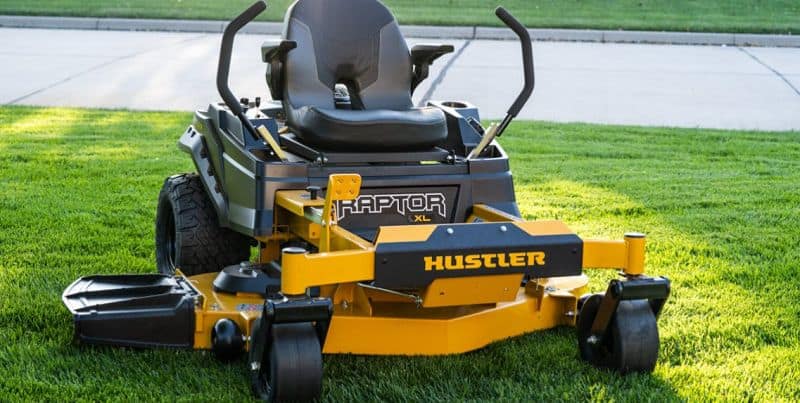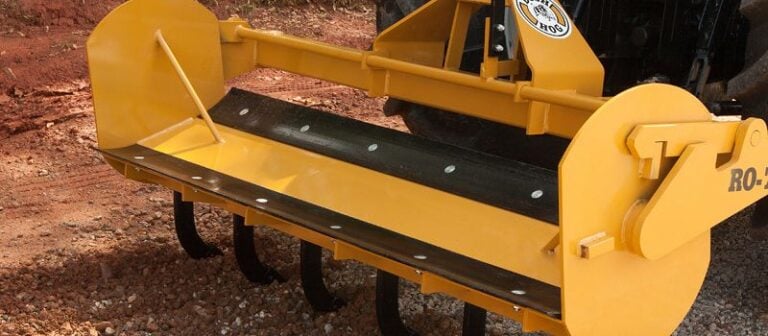What are Flex Forks and are They Worth It?

When you’re mowing your lawn, a lot goes into it to make the ride as comfortable as possible. One of those parts is a flex fork. So what is a flex fork? A flex fork is a shock-absorbing front castor fork.
Flex Forks Make a Lawn Mower Smoother
When you’re using a lawn mower, you want to have as smooth of a ride as possible. That’s where a flex fork comes in. A flex fork gives you a smoother ride by absorbing shocks and vibrations. A flex fork is a suspension fork that uses a spring system to provide shock absorption. The spring system is typically located in the lower part of the fork and consists of either a coil spring or an air spring. The advantage of a flex fork is that it can provide a smoother ride than a traditional rigid fork and better control and handling.
Flex Forks Help To Extend the Life Of Your Machine
If you’re looking for a way to extend the life of your machine, consider investing in flex forks. Flex forks are designed to be more flexible than traditional ones, making them better absorb impact and resist wear and tear. They’re also easier on your back since they allow your spine to move more freely.
What Are Flex Forks Made From?
Flex forks can be made from various materials, but steel is the most common. Steel flex forks are strong and durable but also heavy-duty enough to handle tough jobs. If you need something even tougher, try a titanium flex fork. Titanium is three times stronger than steel so it can withstand even the most demanding jobs.
Can Flex Forks Speed Up the Mowing?
Yes! Using a flex fork absorbs more bumps along the way. This makes it so it’s easier to work for long periods. It also makes navigating the mower around obstacles simpler and safer for the operator.
Flex Forks Vs. Rigid Forks
Flex forks provide a smoother ride by absorbing shocks and vibrations. Rigid forks, on the other hand, are designed for strength and durability. The advantage of a flex fork is that it can help make your ride more comfortable and improve control and handling. However, rigid forks are typically stronger and more durable than flex forks.
Do I need a Flex Fork?
If you’re looking for a smoother ride, then a flex fork may be a good option for you. In addition, many riders find that it helps to ease back pain.
Flex Forks Provide A More Even Cut
Another advantage of a flex fork is that they provide a more even cut. If you have bumps or divots in your lawn, a flex fork can help to level out the ground as you mow over it. This can lead to a nicer-looking lawn and save you time in the long run as you won’t have to go over the same area multiple times to get an even cut.
Flex Forks Can Help With Storage
A flex fork can be a great option if you’re tight on storage space. Because they’re designed to absorb shocks and vibrations, they don’t take up as much space as a traditional rigid fork. This means you can store your flex fork in a smaller area, freeing up space for other lawn care tools.
Flex Forks Are Easy To Install
Another advantage of a flex fork is that they’re easy to install. In most cases, you won’t need any special tools or equipment to install a flex fork on your lawn mower. Instead, you can follow the instructions with the fork; in most cases, it’ll only take a few minutes to get it set up.
A flex fork could be worth the investment if you’re looking for a smoother ride while using your lawn mower. They can provide better shock absorption, an even cut, and easy installation. However, it’s essential to remember that not all flex forks are created equal. Some brands may be better than others, so it’s essential to do your research before making a purchase.
How to pick a flex fork
If you’re interested in purchasing a flex fork, there are a few things that you’ll want to keep in mind. First, you’ll want to make sure you choose a reputable brand. There are a lot of different brands out there, and not all of them are created equal. So do some research and read online reviews to understand which brands are the best.
Second, you’ll want to ensure that you choose the right size fork for your lawn mower. If you have a small lawn mower, you won’t need as large of a fork as someone with a large lawn mower.
Third, you’ll want to make sure that you choose an easy installation fork. In most cases, you shouldn’t need any special tools or equipment to install a flex fork. However, double-checking the instructions with the fork before you begin the installation process is always a good idea.
Fourth, you’ll want to make sure you choose a durable fork. Flex forks absorb shocks and vibrations but can wear down over time. Choose a fork that’s made from high-quality materials so that it can withstand repeated use.
Finally, you’ll want to make sure that you choose a fork that’s comfortable to use. Some forks can be uncomfortable to use, so choosing one that’s comfortable for you is essential.
There’s no doubt that a suspension fork can make a big difference to your ride quality, and if you’re looking for the ultimate in smoothness and control, then a flex fork could be just what you need. Flex forks are designed to offer greater compliance and comfort than traditional rigid forks and can also help improve traction and grip.
How to install flex forks
Flex forks are usually easy to install. In most cases, you won’t need any special tools or equipment to install a flex fork on your lawn mower. Instead, you can follow the instructions with the fork; in most cases, it’ll only take a few minutes to set it up.
What Machines Need Flex Forks?
The primary machines that will need a flex fork are zero-turn mowers. The front wheels on these mowers are very close together, making it difficult to maneuver them without a suspension system. Flex forks can help to provide a smoother ride and better handling, which can be especially helpful if you have a lot of obstacles in your yard.
Another machine that can benefit from a flex fork is a riding lawn mower. If you have a lot of bumps and uneven terrain in your yard, a flex fork can help to provide a smoother ride.
In general, a suspension system can benefit any machine with small wheels designed to be used on rough or uneven terrain. However, if you’re unsure whether your machine needs a flex fork, it’s always best to consult a professional before making a purchase.
What are the disadvantages of a flex fork?
One potential disadvantage of a flex fork is it can add weight to your mower. Another potential drawback is that they may require more regular maintenance than a traditional fork. In addition, some people find that flex forks do not offer as much support as a traditional fork, which can make mowing harder work.
They tend to be heavier than rigid forks. Another is that they can be less responsive to small bumps and surface irregularities, making them feel less precise when steering. Finally, flex forks can sometimes produce an unpleasant “bucking” sensation when going over large bumps or obstacles.
Flex forks can be more expensive than rigid forks, and they may not be suitable for all riding styles. In addition, some riders find them less precise when cornering or descending.
Are flex forks worth it?
Flex forks can be an excellent investment if you’re looking for a smoother ride while using your lawn mower. They can help reduce your body’s vibration and shock, making it easier on your joints and muscles. Also, a flex fork could be worth the investment if you have any health concerns that vibrations or shocks aggravate.
Flex forks are a great choice for those who want a little extra support while mowing. They can help to make the job easier and can also help to extend the life of your mower. However, they may require more maintenance and can add weight to your mower. Ultimately, the decision of whether or not to use a flex fork is up to you.
You can also read:






